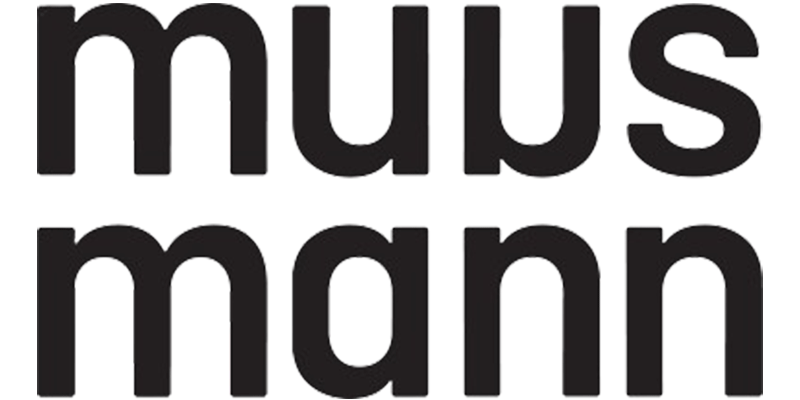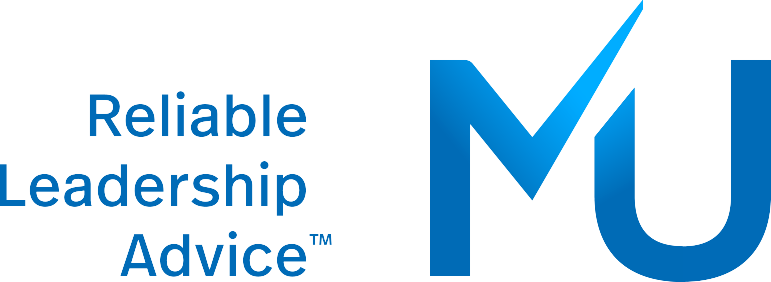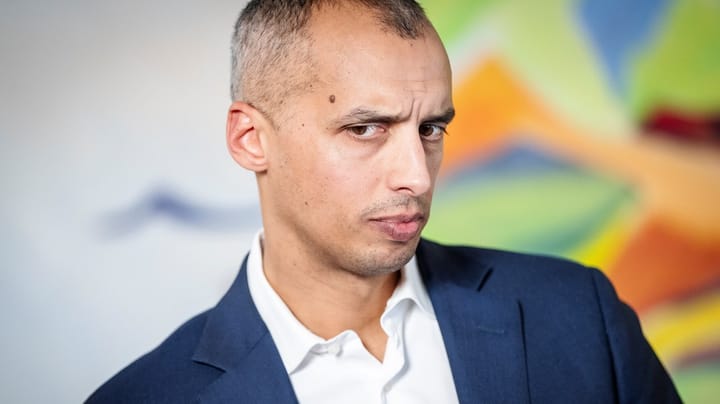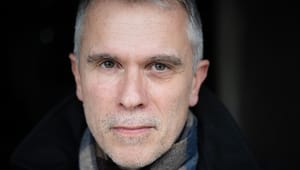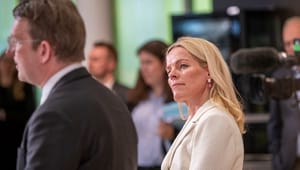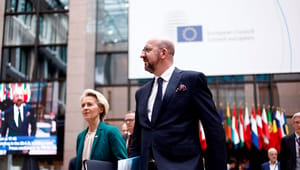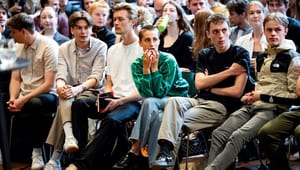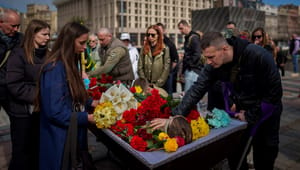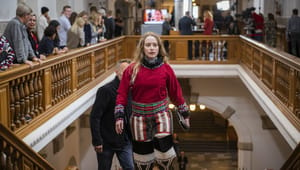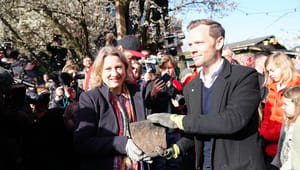Power, billions and hitting the wall: The story of two Danes who gambled everything to save the world
LOOONGREAD: If the UN’s Sustainable Development Goals are to be achieved, it’s going to take money. A lot of money. It’s a problem that two Danes embarked on a journey to solve. Read the fascinating story of their rise to the top of the world of philanthropy – and their subsequent fall.


Carsten Terp Beck-Nilsson
Redaktør, Altinget: civilsamfundOn a Saturday afternoon in July 2014 the seeds were sown for a plan to save the world.
At a picnic in Frederiksberg Gardens two men - who until then had only been acquaintances - fell into a deep, transformative discussion of the sort that changes the way one looks at the world.
Shortly thereafter Morten and Stefan put their respective careers on hold and embarked on a mission to find the money needed to realise the UN’s Sustainable Development Goals (SDGs).
As with most great ideas it was straightforward: Build a bridge between the world’s poorest countries and the world’s largest investors.
We need to get large corporations involved in the international development challenge. Otherwise we won’t get enough power. There will never be enough aid money to achieve the SDGs.
Stefan Maard
Founder, DIVA
Today, however, they are on the verge of giving up, as they haven’t managed to raise the funds from the philanthropic foundations that the idea hinges on.
“I hate losing. I get angry when I lose a game of Risk, and this is like losing 1,000 games of Risk in a single afternoon,” says Morten Møller Holst.

For three years, he and Stefan Maard went on a worldwide rollercoaster ride that elevated them to the status of rising stars in philanthropic circles. Along the way they learned that there is a difference between the impressive statements in foundation strategy papers and their actions in the real world. And it turned out that they had been naïve in believing the philanthropic foundations’ talk of willingness to foster fundamental change for the better.
This is the story of DIVA.
There will never be enough aid money
“The SDGs have given us a common language to talk about sustainable development. But that’s not enough. We also need money. Lots of money.”
There was a sense of urgency in Stefan Maard’s voice, as though it was the thousandth time he had said it and that it’s about damn time that people listen and, not least, understand.
“We need to get large corporations involved in the international development challenge. Otherwise we won’t get enough power. There will never be enough aid money to achieve the SDGs,” he said and added “That is what DIVA is designed for.”
A cocktail glass rested casually in Stefan’s hand. Next to him sat his partner, Morten, dressed in a striking blue suit. Around them servants with tapas and trays of full wine glasses hurried about their business.
At the time the two Danes were in Madrid to kiss some philanthropic frogs and raise money to fund their dream. Altinget has been following them ever since.
But, in fact, the story of DIVA began with a controversial speech in Montreux in the spring of 2013.
It started with a bang
Stefan had been invited to speak at the annual summit of the World Business Council for Sustainable Development (WBCSD), an international network which includes multinational corporations such as Apple, BMW, Kellogg and Shell. The member companies represent a combined revenue of more than USD 8.5 trillion, and what they have in common is a commitment to work for a better world.
Stefan had been invited to share a success story about a sustainable business venture that his employer, Novozymes, had embarked on together with the Danish Investment Fund for Developing Countries (IFU) and other partners in Mozambique. But what he ended up saying was not what the organisers had anticipated.
From the podium, he instead began to talk about how the company CleanStar Mozambique was struggling. On the surface, the company - which made fuel for cooking - may have appeared successful with its 300 employees, 3,000 local suppliers, 30,000 customers, and the prospect of George Soros investing no less than a billion dollars to expand the model to other countries in Africa.
But beneath that surface things looked different. Every start-up has its challenges, and those challenges are no less pronounced when a large corporation is operating in distant, unfamiliar markets. Capabilities were limited, risk was high, and the earnings prospects were far too uncertain.
All of which made the company’s future uncertain, which Stefan did not hesitate to point out.
“At the time I was so frustrated by everything that had gone wrong that I thought: ‘I’m just going to tell it like it is, even though my boss is sitting in the audience. They can fire me if they must’,” says Stefan.
Thus, in a hall filled with some of the world’s most prominent business leaders, Stefan explained how meaningful the project in Mozambique was, but that large corporations are ill-suited to run these kinds of projects.
“They have little patience, low risk tolerance, limited capabilities, and they often have many other investment opportunities that can provide better and faster returns,” he told the audience.
“I pointed out that there were some systemic problems that would have to be solved, and that many ambitious business projects would fail if we did not solve them,” says Stefan.
It was an unusual presentation, prompting a comment from the President of WBCSD, Peter Bakker, which Stefan recalls went something like this:
“OK Stefan, great project and good analysis. So, here you are, whingeing a bit. But what are you going to do about it?”
At the time Stefan didn’t have a good answer. Instead he asked, “Can I get back to you on that once I find out?”
Peter Bakker agreed.
One year later CleanStar Mozambique was liquidated.
Morten went all in
After the birthday party in Frederiksberg Gardens Morten donned his thinking cap. He couldn’t shake Stefan’s idea about saving the world by enlisting the forces of the free market.
“I wasn’t able to relate to Stefan’s talk of heading down to Africa to change supply chains and improve soil quality. All that sounded very distant to me. But then I realised that it was about building companies, and that really got me excited,” says Morten.
At the time he was a partner in a consulting firm which, among other things, did work for several major Danish corporations.
“But I had a budding feeling that my ability to rationalise and optimise businesses within an annual budget cycle could perhaps be used for something more meaningful. It sparked something,” says Morten.
As a management consultant Morten is good at thinking in terms of strategy and business plans that can be executed and realised. What if he could use his talents to contribute to creating an apparatus that could shift the flow of big cash to where it was most needed?
“I thought to myself: ‘Wow, here’s a chance to use my core skills to really make a difference. Opportunities like that don’t grow on trees’.”
DIVA's first big break
Morten held two workshops together with Stefan in the late summer of 2014, and in September of that year he resigned from his position at the consulting firm to dedicate himself wholeheartedly to DIVA. He used his own savings to pay his salary. After all, it would just be for six months, he figured.
After his controversial speech in Montreux Stefan kept in touch with Peter Bakker, and at a dinner in Geneva he got a preliminary commitment of support. But that wasn’t enough. He wanted the president of the WBCSD to commit in earnest. With him on board, gaining access to the multinational corporations would be significantly easier, Morten and Stefan thought, and these multinationals were crucial to DIVA’s business model.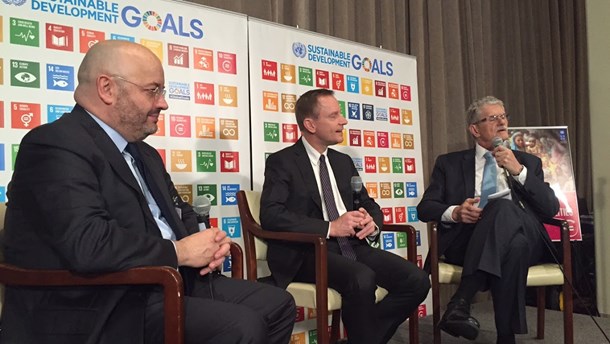
Peter Bakker, Thomas Videbæk (Novozymes) and former President of the United Nations General Assembly, Mogens Lykketoft talking about the SDGs and DIVA.
Morten and Stefan thus worked hard to develop and present the concept behind DIVA in an appealing way, and their efforts paid off. In October 2014 at a dinner in Copenhagen, the president of the global business network committed to becoming a founding partner of DIVA.
“In Montreux I witnessed a very passionate fellow with an insightful analysis that I felt had a lot of merit. And so I pushed him a bit,” explains Peter Bakker.
“I was delighted when he returned, accompanied by Morten, and at the dinner in Copenhagen they presented a concept that was still unfinished, but which had potential. They had taken a big step forward rather than simply being depressed about a failed project. I wanted to support that,” he says.
DIVA had gotten its first big break.
A chemical giant took the bait
At the time Morten was still paying his own salary and Stefan was working full-time at Novozymes while also putting in full-time work at DIVA.
But the agreement with WBCSD put wind in their sails. Now they had a chance to engage with the multinational corporations that were essential for the project to succeed.
It was they who would supply DIVA with the ideas that would become sustainable businesses in developing countries.
From the start, Morten and Stefan were conscious of the fact that DIVA should not be restricted to Denmark. The challenges were global and the solutions had to be global as well, which meant that corporations from various countries needed to be included in the portfolio.
That was why Morten and Stefan found themselves in a remote area in southeastern Netherlands in March 2015. It was on a field in Geleen, a town near Sittard, where the chemical giant DSM had placed its innovation department, with 1,500 staff working on developing technologies that would shape the future for one of the world’s 1,000 biggest companies.
DIVA was offering a solution to one of the company’s challenges, says DSM Venturing’s Managing Director, Pieter Wolters.
“There will always be ‘homeless technology’ in big companies, either because the business potential is too small, it is too ahead of its time, or because the application of the technology would be in a region where the company has no presence, nor a willingness to invest in developing a presence,” he explains.
“So it was a fascinating proposition to bring the idea to a company with local knowledge and access to resources and let the project mature, with a view to later incorporating it back into the company and capitalising on it.”
Six months after the meeting in Geleen DSM bought a stake in DIVA.
Novozymes came on board
DIVA had thus gotten its first company in the portfolio.
It was followed by another corporation in the spring of 2016, namely the Danish biotech giant Novozymes. And it was not just because Stefan happened to work there, emphasises COO and Executive Vice President of Novozymes, Thomas Videbæk.
“We had the experience of our investment in CleanStar Mozambique, which ended up being far bigger and more complex than we had originally anticipated. So, with that experience in mind, I also think we would have gotten involved if someone else had come up with a concept like DIVA,” he says.
What is your interest in it?
“If we are going to work with the SDGs in new markets, it will require other competences than those we possess. There is a type of risk attached to those projects which we cannot live with,” he says.
“That’s why I think it would be really exciting to build up a unit that has the competences and means to take part of the risk, which Novozymes and others could then benefit from.”
Danish foundations were irrelevant
In other words, things were going well in terms of getting companies involved. Regarding the foundations, however, things were proceeding at a more sluggish pace.
The philanthropic foundations were envisaged to play a dual role in DIVA’s model: In the initial phase they would contribute to DIVA’s core operations with classic donations, while, at the same time, making so-called ‘mission related investments’ - investments that support the foundations’ non-profit goals – in the ventures in DIVA’s portfolio. But neither happened.
Morten and Stefan quickly looked beyond the Danish foundations. Inquiries at the Carlsberg Foundation and Realdania did not yield anything, and insiders in the Danish foundation space confirmed Morten and Stefan’s suspicion that the DIVA model did not fit well with Danish foundation mandates and interests.
“We heard that most Danish foundations historically concern themselves with addressing other issues. A lot of their work deals with building squares, parks and football stadiums. Research and art. Culture and infrastructure,” says Morten.
He stresses that DIVA hadn’t gone knocking on many of the Danish foundations’ doors, however.
“For example, we sat down with Realdania, which has a reputation for being among the most progressive foundations here in Denmark. They told us that what we were doing was too far afield from what they did. So we figured that we would have better chances finding suitable foundations abroad,” says Morten.
These are my people
Morten and Stefan set their sights on the international foundation space, but those were uncharted waters.
With the corporations they had been able to leverage Stefan’s social capital. And their partnership with Peter Bakker and WBCSD had opened lots of doors.
With the foundations, however, DIVA had no such capital. They realised that they would have to find a door opener. With a target list as long as the Dead Sea Scrolls, Morten and Stefan went to a philanthropy conference hosted by the European Venture Philanthropy Association (EVPA) in Madrid in December 2015. Surely, among so many big name social investors, they would be able to find DIVA’s ambassador.
The conference looked promising. EVPA had done their part to spread the word about the two Danes and their innovative concept, and people flocked around them at the event in Madrid. Stefan participated in panel debates and gave presentations while Morten made scores of elevator pitches in the slipstream. They were as enthusiastic as ever.
“Morten told me more than once ‘these are my people’. The fact that such people existed really touched him,” says Stefan.
But when Morten and Stefan look back on the experience today, they think the overwhelming interest was actually a bad sign.
“I took it as a good sign that people were so interested in talking to us - and how prominent we became so quickly in EVPA; becoming members for free and joining executive gatherings that are usually off-limits to those without a billion dollars in their pocket,” says Morten.
“I thought it showed that there was a link between what we could provide and what the customers wanted. But no, all it showed was that we were four steps ahead of the game and exciting to look at.”
“Wishes and actual demand are not the same thing,” added Stefan.
“If you come up with a cool, driver-less car design, that doesn’t mean you would be able to sell it today. But maybe you could in ten years.”
An ambassador appeared
Morten and Stefan were in high demand at Madrid. They were constantly pulled away and invited to cocktails at closed sessions, which they certainly enjoyed. But the reality was that they were looking for someone themselves.
At the top of Morten and Stefan’s list was Steven Serneels, a Belgian serial entrepreneur and philanthropist with an influential network in the philanthropic world.
Prior to that Stefan had only had a hurried conversation with him on a bad connection from Addis Ababa. It did not go well. In other words, the starting point was not ideal.
In Madrid, Morten and Stefan managed to get 15 minutes with a rather sceptical Steven Serneels in a basement at Casa de América.
“I have so many ideas pitched to me that if I were to pursue all of them, I wouldn’t be able to do anything else with my time,” says Steven.
But it was DIVA’s lucky day. 15 minutes became 30. Then 45. And by the time they left the basement they had reached a deal.
“Businesses are becoming more and more aware of their need to take social responsibility, but it won’t happen on its own. What is needed are some mechanisms to push it forward,” says Steven Serneels.
“And it’s in that respect that I saw some very promising elements in DIVA, while at the same time I was persuaded by Morten and Stefan’s seriousness and down-to-earth manner.”
DIVA had found their ambassador to the foundations.
In a world without rejections
But by the time the leaves began to fall from the trees in 2016, DIVA still hadn’t landed a single foundation.
It wasn’t because they failed to get their attention.
The BMW Foundation had shown interest. The director of the Shell Foundation had told them to get in touch if or when they had a specific project that dealt with clean energy. And in North Carolina the board of the FHI Foundation asked DIVA to work on a project together with the foundation’s own NGO in Washington.
All the talks Morten and Stefan had with foundations shared one thing in common: they never got an outright rejection, but they also never secured the commitments they needed.
“In that world, no one says no. You can either come back later, or you can get a bit of money for something, and then we can write a report together,” says Stefan.


Once your foot’s in the door, you don’t get rejected. Instead, you get some pocket change and get sent back up on the hamster wheel again, according to Morten and Stefan. Photo: Rasmus Flindt Pedersen
“Well, if you’re a complete idiot, then of course you’ll get a straight no,” adds Morten.
“But once you’ve gotten to our level and have your foot in the door, had a few drinks and danced in a circle with a lot of these people in a bar in Hong Kong, you instead get sent back on the hamster wheel or on a detour and get a little pocket change.”
“However, if you really push hard, you can get an answer that comes as close to a no as these people are capable of giving,” says Stefan, shaking his head.
“’If you can shift DIVA’s focus exclusively to sustainable textile production, we’d be able to find some money for you’”.
A struggle to keep things going
As time passed the situation became more and more critical for the ambitious NGO, which was somewhat ironic.
While DIVA was constantly making more headway on the business front, without funding from the foundations it was proving difficult to make operational ends meet, and there was no shortage of work to be done.
“We had to work on funding, communicating our story, tending our relationships with partners, chairman and advisory boards, filing budgets and taxes, and drafting contracts - all in accordance with US law.”
Morten recalls a skiing holiday with his girlfriend’s children in Austria where he had to send the boys up on the piste while he had to stay at the hotel to work.
“I became really good friends with the Austrian bartender, since I was sitting at the bar working every night until everyone else had left and he had to close,” says Morten.
“I’m not telling you that to say that we had it rough, but it was a sign of how thinly we were stretched.”
Stefan, too, recalls a half-year period with working weeks exceeding 80 hours and where he gradually gained weight thanks to an unhealthy diet and too much alcohol.
“I think I made it up to 95 kilos. Six months with too much food, too much alcohol and too much work isn’t great for your body,” he says.
The situation came to a head
At the same time a new partner entered the picture: the Pakistani serial entrepreneur Faraz Khan.
What he envisaged was that his company and DIVA would join forces to help the large Pakistani corporation Engro build a company that would supply smallholder farmers with cheap, high-quality animal feed, making them independent of greedy middlemen.
The concept was a perfect fit. But when they met at an exclusive VIP club in London, Morten had to explain to the Pakistani entrepreneur that DIVA would not be able to contribute so much as a single rupee to the endeavour. In fact, Morten did not even have enough money on hand to send his car to the garage at the time.
Faraz Khan was astounded.
“I must say that I’m very shocked by what you’re telling me. I thought we would be working together. I have to go out for a smoke,” he said, according to Morten.
He returned shortly after. In the end, they reached an agreement where Faraz Khan’s company, SEED Ventures, would invest a million dollars on the condition that DIVA would deliver the method and raise capital from foundations.
An amazing project that never came to be
It was not the only thing draining the Danes’ resources. Their partnership with the chemical giant DSM was also taking up a great deal of their time and energy.
The engagement had resulted in an idea to further the development of solar mini-grids to supply off-grid villages and businesses in developing countries with power. The idea was to create a one-stop shop that would equip local developers with everything they would need - from financing to the necessary technology and sales support - to set up and operate mini-grids.
DIVA led the development of the concept, and Morten and Stefan worked hard to create a business plan and flesh out the project before it was to be presented to the board of DSM.
“We had worked ourselves half to death, and it was such a cool project. But there we were, sitting in the plane, knowing that we would have to tell them ‘Here you go, that’s the project. We can’t carry it out right now, but at least now you have the opportunity to do so.’ And we knew that they wouldn’t do it without us. It was enough to bring you to tears,” says Morten.
A line in the sand
By autumn 2016 the situation had become untenable. Something had to be done.
“There was simply too little time and too little money, so we had to acknowledge that this wasn’t what we had wanted when we first started. However, we still wanted DIVA to succeed and we were ready to work under poor conditions for a year or two more, but we needed other parties to take the financial exposure,” says Morten.
The Belgian philanthropist Steven Serneels had put aside hiss initial scepticism and invested in DIVA. He had also agreed to become chairman of the NGO’s board of directors.
At a workshop in Amsterdam he indicated that he was ready to inject more money into the operation, but Morten and Stefan pulled on the brake. It was time to draw a line in the sand.
“It was hard to say ‘No, it won’t help giving us another 150,000 dollars, because it won’t fix things. We can’t expand, we can’t invest in Pakistan and we can’t hire staff. All we’d be doing is prolonging the pain’,” says Stefan.
Instead, the trio made a three-year plan. It entailed raising six million Euro for the following three years, 600,000 of which was to be raised within the first six months.
And Paris was the place where they would make that happen.
Fame without value
As in Madrid the year before, Stefan and Morten got a lot of attention at the EVPA conference, only this time the hype was even greater.
“When we showed up in Paris we discovered that we were hugely popular. People thought we were cool and innovative; the next generation. It was quite overwhelming,” says Stefan.
Peter Bakker was the keynote speaker at a VIP event for a group of philanthropic superstars, hosted at the Renault Foundation the day before, and spent five minutes of his speaking time shining the spotlight on Morten and Stefan.
“These guys are the future. Go have a chat with them after this,” he said, prompting a standing ovation.
But nothing happened afterwards.
“I glanced over at three people I wanted to talk to. They had the money and we had exchanged e-mails in advance. Two of them disappeared no more than five minutes after the session was over,” says Stefan.
The same thing happened the day after.
“It felt like they were trying to avoid me,” he adds.
However, people still came up to talk to Morten and Stefan wherever they went. There was no shortage of consultants who wanted to pitch ideas, as well as PhD students who wanted to write papers and dissertation about DIVA.
“We missed one shot after another, and we ended up spending our time on a lot of people who didn’t own or manage money at the right level,” says Morten.
“In Madrid we had to kiss a lot of frogs. In Paris we were the ones the consultants wanted to talk to, just so they could say that they knew us. But for us it was completely worthless.”
The Ghost of Christmas Future
They hit a low-point after a debate where Stefan was on the panel.
He and Morten were in the process of planning who they would try to engage with when a middle-aged social entrepreneur walked up to them.
“We were in the process of making some quick decisions under pressure, so we weren’t in a particularly good mood. We were in a situation where we didn’t know whether DIVA was going to make it,” says Morten.
“I could feel that I was quickly getting frustrated, which I don’t usually do, but in that particular situation I was just tired of listening to bullshit. So, I stood there agape, listening as he kept on pitching some dull idea that he himself didn’t even seem to truly believe in.”
“It was uncomfortable,” adds Stefan.
“You could tell that he had been passionate about impact for years, but things just hadn’t worked out for him.”
Stefan politely rejected the consultant and turned to Morten, saying “We could end up like that if we continue like this.”
For the two Danes, the consultant represented the Ghost of Christmas Future; the ghost that shows what would happen if you keep going year after year without any real opportunity to make your dream a reality.
“You can be competent and passionate about making a difference, but if you’re always getting only just enough to keep it going without realising your potential, you end up becoming incompetent and pitiful,” says Morten.
That evening Morten and Stefan went into town and left the conference behind.
We don’t fit in the boxes
Paris was a failure.
The money never came. The commitments remained elusive. Morten and Stefan returned home empty-handed.
Today Stefan is on paternity leave and Morten is once again working as a consultant.
DIVA is still alive, albeit on life support.
“The foundations proved to be our blind spot. We wanted to believe them so badly,” says Morten.
“But I’ve concluded that we need to talk to those who own the money rather than those who administrate it. We just don’t fit in boxes the foundations need us to.”
Couldn’t that be because your concept is flawed? That your model is too complex?
“Yes, but it’s a complex problem, and it requires a complex solution,” says Morten.
“We have tried again and again to reduce the complexity of DIVA, but every time we’ve arrived at the conclusion that we would have to destroy a part of the design, and then it wouldn’t work any longer.”
“Anyhow, why should complexity be a problem?” asks Stefan.
“If you make financial products, you can make them as complex as you want them to be. Why? Because it ends up making huge amounts of money.”
The problem isn’t DIVA’s concept, according to Stefan.
“We have a model that, I believe, has a level of complexity that’s necessary to solve a complex problem. But there’s not enough drive and insufficient incentives in the world around us to solve the problem,” says Stefan.
Are you ready to lay DIVA to rest?
“It’s hard to keep it alive, but whenever we talk about the possibilities there’s still a lot of good energy there. So, if someone with enough money and the right mandate comes along, I’m ready to keep going,” says Morten.
Both he and Stefan remain convinced that the idea is viable.
“I’m convinced that it’s only a matter of time before the ideas behind DIVA gain further traction. And I believe that our experiences can create value in a lot of different contexts,” says Stefan.
Are you bitter?
“The word ‘bitter’ rubs me the wrong way. But I’m totally indignant,” says Morten.
“I’m not bitter about Stefan and I having started an ambitious project that hasn’t succeeded. That, I think, is very commendable. But I worry on behalf of my girlfriend’s boys and on behalf of society. There’s an urgent need to deploy commercial funds to achieve the SDGs.”
“The reason I was passionate about CleanStar Mozambique and DIVA was because it was about making a difference at an international scale,” says Stefan.
“There are certain problems that cannot be solved by commercial means, such as wars. But perhaps 50-60 percent of the world’s problems could be solved if one is creative enough. And that’s what DIVA is about; designing the key to do just that”.
Stefan pauses for a moment.
“If this doesn’t succeed, I’ll be incredibly disappointed. But then I’ll just have to dry my eyes and find another way to make a difference in the world.”
HOW DIVA AIMS TO SAVE THE WORLD
DIVA Ventures is a NGO. It is based in Washington D.C., but was founded by the two Danes Morten Møller Holst and Stefan Maard.
DIVA’s goal is to create market-driven sustainable development by bridging the gap between poor countries and major investors such as venture capital funds, pension funds and other institutional investors.
DIVA wants to bridge that gap by creating companies in developing countries. Helped by DIVA, these companies would then grow sufficiently to become interesting targets for major investors.
The process works as follows:
DIVA enters into a collaboration with a multinational corporation.
The corporation has an idea for a product or service which it is not pursuing itself. The reason might be, for instance, that the idea would require the business to move outside its core business area, or because the prospect of a sufficiently quick or large return on the investment is absent.
To qualify for working with DIVA, the idea has to make a significant contribution towards achieving the SDGs.
Instead of executing the idea on their own, the multinational corporation injects technology, know-how and capital into a company that is founded for the purpose of collaborating with DIVA.
DIVA takes a lead role in building the company and recruiting local partners in a developing country, for instance somewhere in Africa.
DIVA also assists with expertise in management, business development, marketing, law, etc., primarily through the experts that DIVA partners with.
Eventually the start-up becomes strong enough to become an interesting target for major investors. At that point DIVA pulls out of the start-up and shifts its focus to new ideas.
What makes this model special is that DIVA also acts as an investment partner, thereby taking part of the risk in the challenging start-up phase.
Funding for DIVA’s own operations and investments would initially come from foundations. When DIVA’s portfolio eventually grows sufficiently large, such funding would no longer be necessary.


















